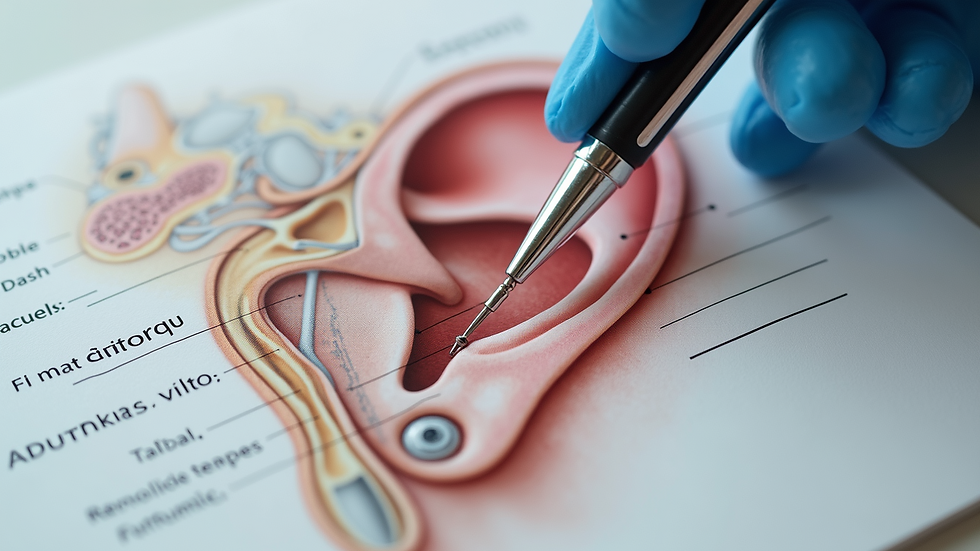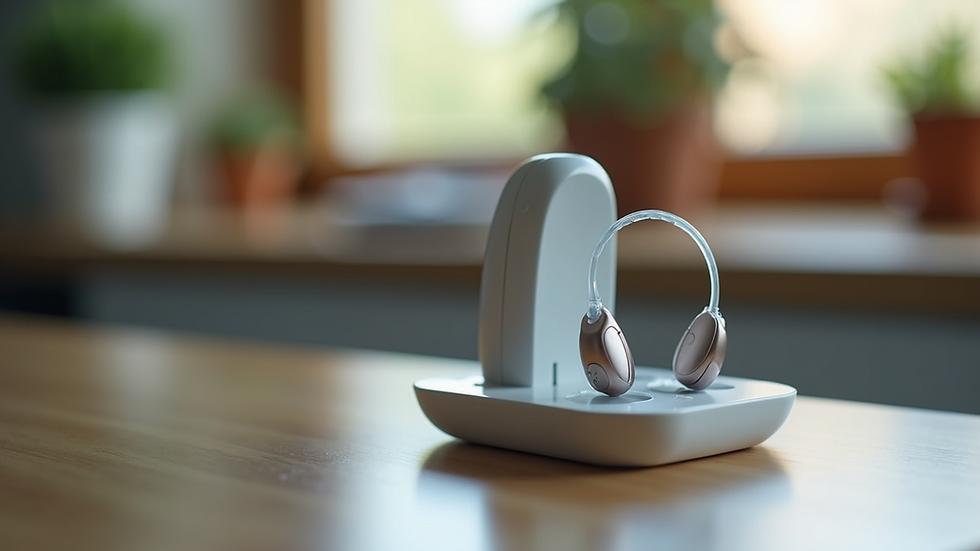How to Maintain Healthy Ears for a Lifetime
- May 29, 2025
- 4 min read
Maintaining good ear health is essential for your overall well-being. Ears play a vital role in how we interact with the world, allowing us to hear sounds, communicate effectively, and maintain our balance. Yet, many people neglect ear care, leading to a range of potential issues. This blog will guide you through practical steps to ensure your ears stay healthy for a lifetime.
Understanding Ear Health
Understanding ear health is the first step toward maintaining it. The ear has three main parts: the outer ear, the middle ear, and the inner ear. Each section has a specific function. The outer ear collects sound waves, the middle ear amplifies these sounds, and the inner ear converts them into signals that the brain can interpret.
Regular exposure to loud noises can cause damage, leading to hearing loss. According to the World Health Organization, around 1.1 billion young people are at risk of hearing loss due to loud music and recreational noise. Therefore, awareness of ear health is crucial for people of all ages.

Simple Practices for Daily Ear Care
Caring for your ears on a daily basis can prevent problems down the line. Here are some simple practices:
Keep Your Ears Dry: Excess moisture can lead to infections. After showering or swimming, gently dry your ears with a towel. Avoid inserting cotton swabs, which can push wax deeper.
Use Ear Protection: If you're exposed to loud noises, such as at concerts or while operating machinery, use earplugs. This simple step can greatly reduce the risk of hearing damage.
Avoid Inserting Objects: Avoid trying to remove earwax with cotton swabs, bobby pins, or fingers. Wax is meant to protect your ears, and removing it can be harmful.
Signs of Potential Issues
It's important to pay attention to signs that may indicate an issue with your ears. Some common symptoms include:
Hearing Loss: Difficulty hearing conversations or asking others to repeat themselves can be an early sign of hearing impairment.
Ringing in the Ears: Known as tinnitus, this condition can be temporary or chronic and often requires medical attention if it persists.
Pain or Discomfort: Ear pain can be a sign of an infection or other problem. Don't ignore persistent pain; consult a healthcare provider.
Monitoring yourself for these signs can lead to earlier diagnosis and treatment. This can help prevent further complications and preserve your hearing health.

Nutrition's Role in Ear Health
Believe it or not, what you eat can affect your ear health. Diets rich in vitamins and minerals are crucial for maintaining hearing.
Vitamin D: Adequate vitamin D intake may help prevent age-related hearing loss. Foods like fattened fish, orange juice, and egg yolks are excellent sources.
Antioxidants: Vitamins like C and E can protect your ears from oxidative stress. These vitamins can be found in berries, nuts, and leafy greens.
Magnesium: Research suggests that magnesium may help protect against noise-induced hearing loss. Foods rich in magnesium include bananas, avocados, and dark chocolate.
By incorporating these nutrients into your daily diet, you can give your ears the support they need.

Regular Check-ups and Professional Care
Just like any other part of your body, your ears require regular check-ups to ensure they are healthy. Routine visits to an ear specialist can help detect potential issues before they become serious. Most health professionals recommend getting your hearing checked every few years, especially as you age.
In addition, should you notice symptoms like those mentioned earlier, it’s important to seek professional advice. Professional evaluation may include hearing tests and visual examinations to rule out any underlying conditions.
For those at higher risk—such as musicians, factory workers, or individuals frequently in loud environments—consider utilizing specialized ear health services to maintain optimal ear health.
Lifestyle Modifications for Better Ear Health
Making small lifestyle changes can significantly impact your ear health. Consider the following modifications:
Limit Exposure to Loud Sounds: Monitor the volume of music through headphones. If someone can hear your music from afar, it's too loud.
Quit Smoking: Smoking has been associated with increased risk of hearing loss. Quitting can improve your overall health, including your ear health.
Manage Stress: High stress can worsen conditions like tinnitus. Incorporate stress-reducing activities such as yoga, meditation, or regular exercise into your routine.
By implementing these changes, you can create a healthier lifestyle that supports your ear function.

The Lifelong Benefits of Healthy Ears
Maintaining healthy ears has far-reaching benefits. Clear hearing enhances your ability to communicate effectively, enjoy social situations, and even maintain your balance. The impact goes beyond just hearing; it connects with how you perceive the world.
As you grow older, the importance of ear health becomes even more critical. The aging population is more susceptible to hearing-related issues. By taking care of your ears now, you can ensure a better quality of life in your later years.
In summary, following these tips will help you maintain healthy ears for a lifetime. Incorporate daily practices, be aware of potential issues, and seek professional help as needed. A little awareness and proactive care can go a long way in keeping your ears healthy and functional.





Comments